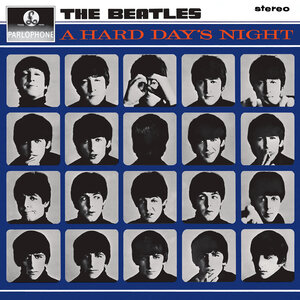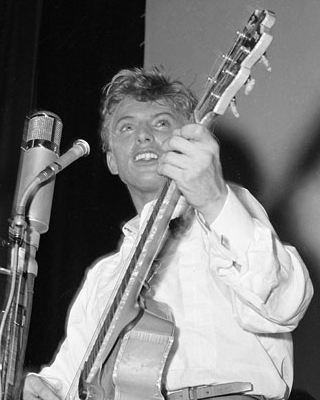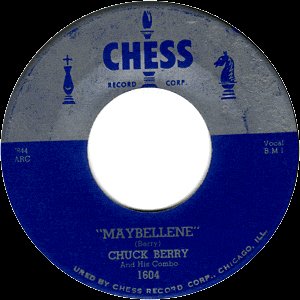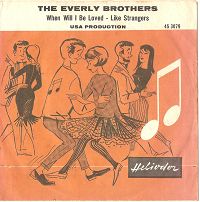
A Hard Day's Night is the third studio album by the English rock band the Beatles, released on 10 July 1964 by Parlophone, with side one containing songs from the soundtrack to their film of the same name. The American version of the album was released two weeks earlier, on 26 June 1964 by United Artists Records, with a different track listing including some from George Martin's film score. A Hard Day's Night is the band's first album to contain all-original material, penned by John Lennon and Paul McCartney.
Synth-pop is a music genre that first became prominent in the late 1970s and features the synthesizer as the dominant musical instrument. It was prefigured in the 1960s and early 1970s by the use of synthesizers in progressive rock, electronic, art rock, disco, and particularly the Krautrock of bands like Kraftwerk. It arose as a distinct genre in Japan and the United Kingdom in the post-punk era as part of the new wave movement of the late 1970s.

Sir Thomas Hicks, known professionally as Tommy Steele, is an English entertainer, regarded as Britain's first teen idol and rock and roll star.

Andrew McLuckie White was a Scottish drummer, primarily a session musician. He is best known for temporarily replacing Ringo Starr on drums for the Beatles' first single, "Love Me Do". White was featured on the American 7" single release of the song, which also appeared on the band's debut British album, Please Please Me. He also played on "P.S. I Love You", which was the B-side of "Love Me Do".
The Tornados were an English instrumental rock group of the 1960s that acted as backing group for many of record producer Joe Meek's productions and also for singer Billy Fury. They enjoyed several chart hits in their own right, including the UK and US no. 1 "Telstar", the first US no. 1 single by a British group.

Ronald Wycherley, better known by his stage name Billy Fury, was an English musician. An early star of rock and roll, he spent 332 weeks on the UK singles chart. His hit singles include "Wondrous Place", "Halfway to Paradise" and "Jealousy". Fury also maintained a film career, notably playing rock performers in Play It Cool in 1962 and That'll Be the Day in 1973.

"Maybellene" is a rock and roll song by American artist Chuck Berry, adapted in part from the western swing fiddle tune "Ida Red". Released in 1955, Berry’s song tells the story of a hot rod race and a broken romance, the lyrics describing a man driving a V8 Ford and chasing his unfaithful girlfriend in her Cadillac Coupe DeVille. It was released in July 1955 as a single by Chess Records, of Chicago, Illinois. Berry's first hit, "Maybellene" is considered a pioneering rock and roll song. Rolling Stone magazine wrote of it, "Rock & roll guitar starts here." The record was an early instance of the complete rock and roll package: youthful subject matter; a small, guitar-driven combo; clear diction; and an atmosphere of unrelenting excitement.

Jack Good was a British television producer, musical theatre producer, record producer, musician and painter of icons. As a television producer, he was responsible for the early popular music shows Six-Five Special, Oh Boy!, Boy Meets Girls and Wham!!, the first UK teenage music programmes. Good managed some of the UK's first rock and roll stars, including Tommy Steele, Marty Wilde, Billy Fury, Jess Conrad and Cliff Richard.

Bob Stanley is a British musician, journalist, author, and film producer. He is a member of the indie pop group Saint Etienne and has had a parallel career as a music journalist and author, writing for NME, Melody Maker, Mojo, The Guardian and The Times, as well as writing several books on music and football. His second publication, Yeah! Yeah! Yeah!: The Story of Modern Pop, was published by Faber & Faber in 2013. His third publication Let's Do It: The Birth of Pop Music: A History was published by Pegasus in 2022. He also has a career as a DJ and as a producer of record labels, and has collaborated on a series of films about London.

"All the Way from Memphis" is a single released by Mott the Hoople as the lead track from the album Mott in 1973. The song tells a story about a rock and roller whose guitar is shipped to Oriole, Kentucky, instead of Memphis, Tennessee. The track peaked at No. 10 in the UK Singles Chart. Although it did not chart in the United States, it did receive considerable airplay on album-oriented rock stations. The Mott album, from which it was released, reached the Top 40 of the Billboard 200, peaking at No. 35.

"Mony Mony" is a 1968 single by American pop rock band Tommy James and the Shondells, which reached No. 1 on the UK Singles Chart and No. 3 in the U.S. Written by Bobby Bloom, Ritchie Cordell, Bo Gentry, and Tommy James, the song has appeared in various film and television works such as the Oliver Stone drama Heaven & Earth. It was also covered by English singer-songwriter Billy Idol in 1981. Idol's version, which took in more of a rock sound, became an international top 40 hit and additionally revived public interest in the original garage rock single. Idol recorded a live version in 1985 which was ultimately released in 1987 where it became an even bigger hit than the Shondells' 1968 original, reaching No. 1 on the Billboard Hot 100.

"Rock the Joint", also known as "We're Gonna Rock This Joint Tonight", is a 1949 boogie song recorded by various proto-rock and roll singers, notably Jimmy Preston and early rock and roll singers, most notably Bill Haley in 1952. Preston's version has been cited as a contender for being "the first rock and roll record", and Haley's is widely considered the first rockabilly record.

"Rock On" is a song written by English singer David Essex. Recorded in 1973 and released as a single by Essex, it became an international hit. In 1989, American actor and singer Michael Damian recorded a cover version that went to number one on the Billboard Hot 100 chart. The song has been recorded many times, including a 2006 version by the English hard rock group Def Leppard.

Vince Eager is an English pop musician. He was widely promoted by impresario Larry Parnes, but later quarrelled with him over his commercialising of Eddie Cochran's tragic early death. Eager has since appeared in cabaret and on the West End stage.

"When Will I Be Loved" is a popular song written by Phil Everly of the Everly Brothers, who had a US top-ten hit with it in 1960. Linda Ronstadt covered the song in 1975, and her version was an even bigger hit in the US, peaking at No. 2. Vince Gill also covered it in 1994 on the soundtrack of the film 8 Seconds.
Post-punk is a broad genre of music that emerged in 1977 in the wake of punk rock. Post-punk musicians departed from punk's fundamental elements and raw simplicity, instead adopting a broader, more experimental approach that encompassed a variety of avant-garde sensibilities and non-rock influences. Inspired by punk's energy and do it yourself ethic but determined to break from rock cliches, artists experimented with styles like funk, electronic music, jazz, and dance music; the production techniques of dub and disco; and ideas from art and politics, including critical theory, modernist art, cinema and literature. These communities produced independent record labels, visual art, multimedia performances and fanzines.

"I Didn't Know I Loved You (Till I Saw You Rock and Roll)" is a song by English glam rock singer Gary Glitter, written by Glitter with Mike Leander and produced by Mike Leander. It was released as the second single from his debut studio album, Glitter (1972) and peaked at No. 4 on the UK Singles Chart. It was also Glitter's second and last charted record in the US, peaking at #35. Rock Goddess and Planet Patrol both recorded cover versions in 1983.

"Black Skin Blue Eyed Boys" is a song written by Guyanese-British musician Eddy Grant and recorded in London in 1970 by his band the Equals. Their recording, produced by Grant, reached number 9 on the UK Singles Chart in January 1971 and was the band's last chart hit.
"Rock 'n' Roll Winter " was a song written by Roy Wood. It was released by the British rock band Wizzard, as their first single on the Warner Bros label in 1974. It was originally meant to be issued early in 1974 but the date was pushed back to 29 March 1974, before it was finally released on 19 April that year. Nevertheless, it sold well and reached number 6 on the UK Singles Chart, and number 13 on the Irish Singles Chart.

Tommy Steele Stage Show is a live album by English entertainer Tommy Steele, released as a 10-inch LP by Decca in March 1957. A concert recording of Steele backed by the Steelmen at London's Conway Hall, it was his first album release and features a version of the hit single "Rock with the Caveman" alongside several covers of American songs including three previously recorded by Hank Williams. The album's release followed Steele's swift rise to fame as a teen idol widely considered Britain's first rock and roll star, and the success of his UK Singles Chart number one "Singing the Blues". It received a muted critical reception but was commercially successful, peaking at number five on the UK Albums Chart.
















